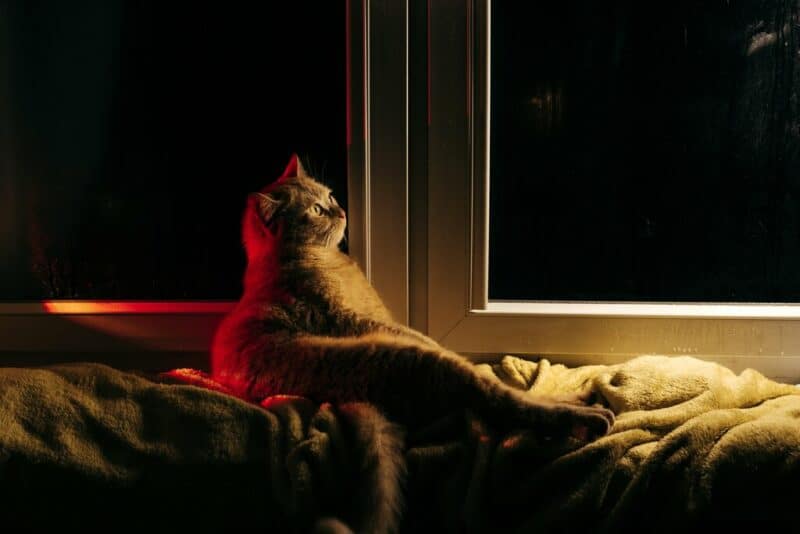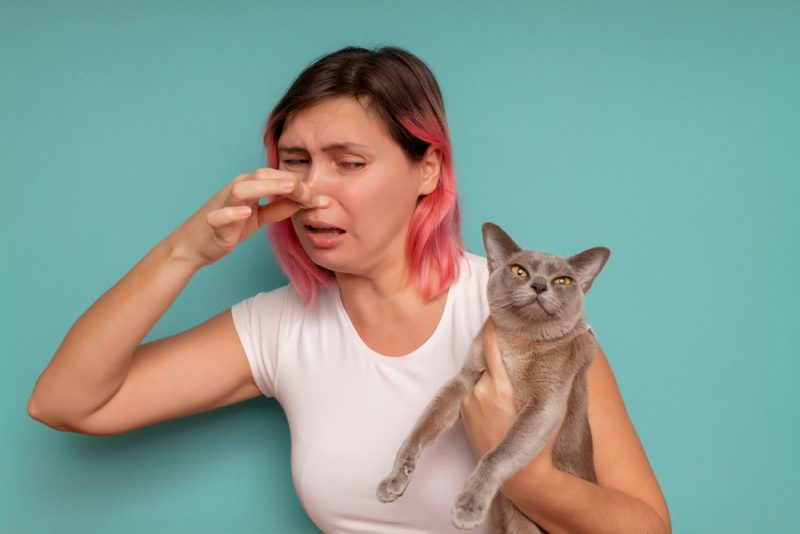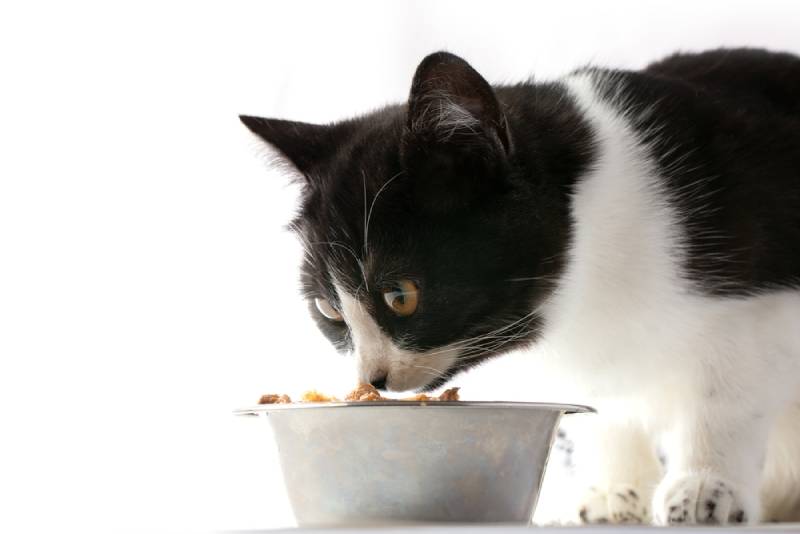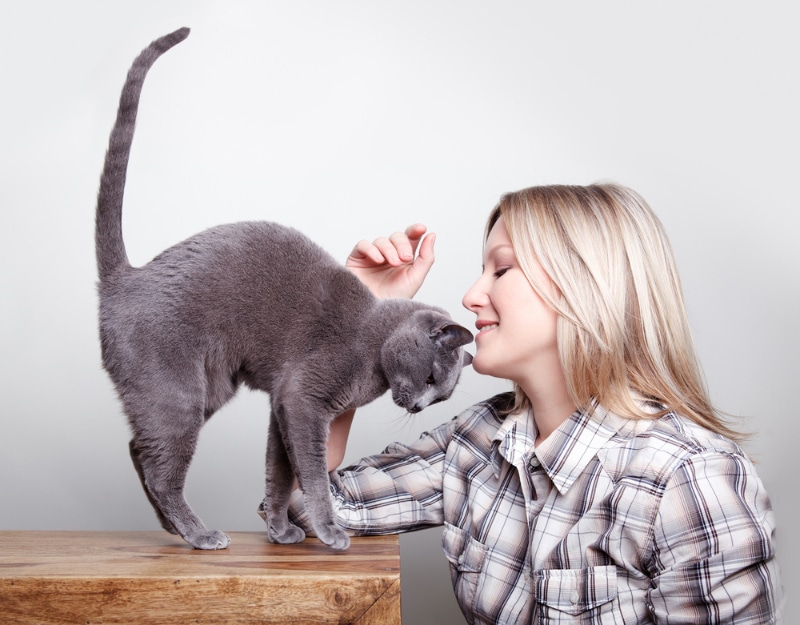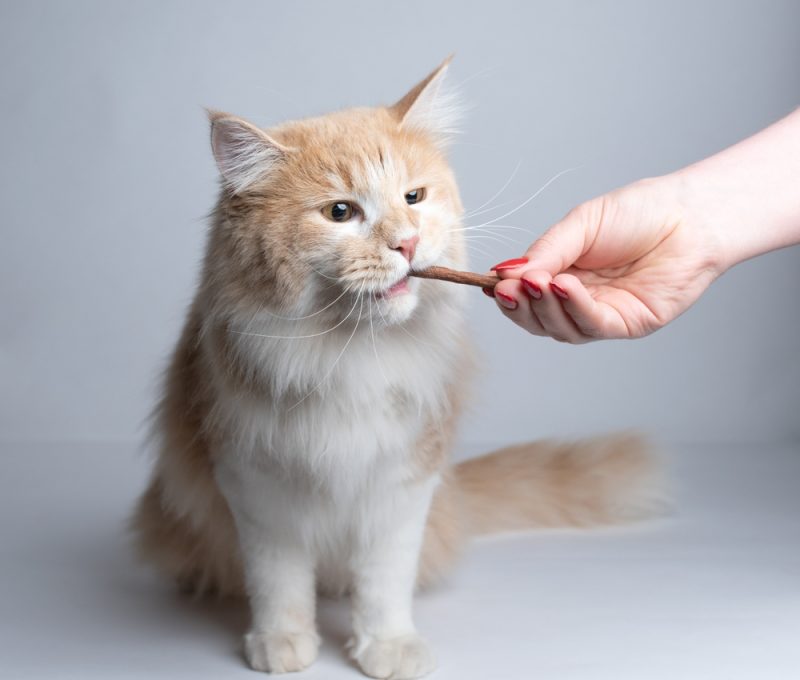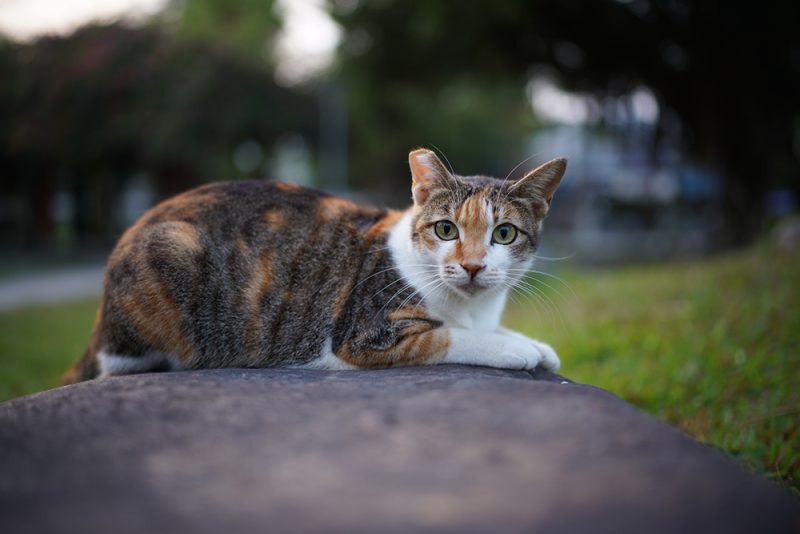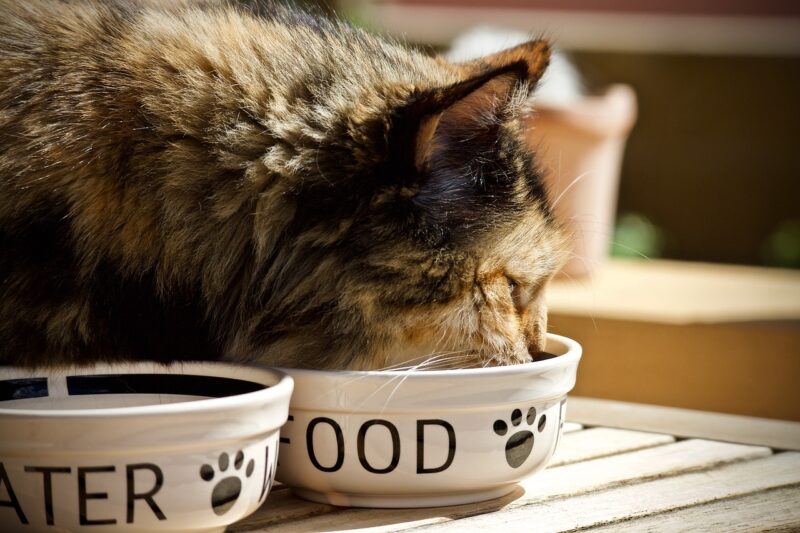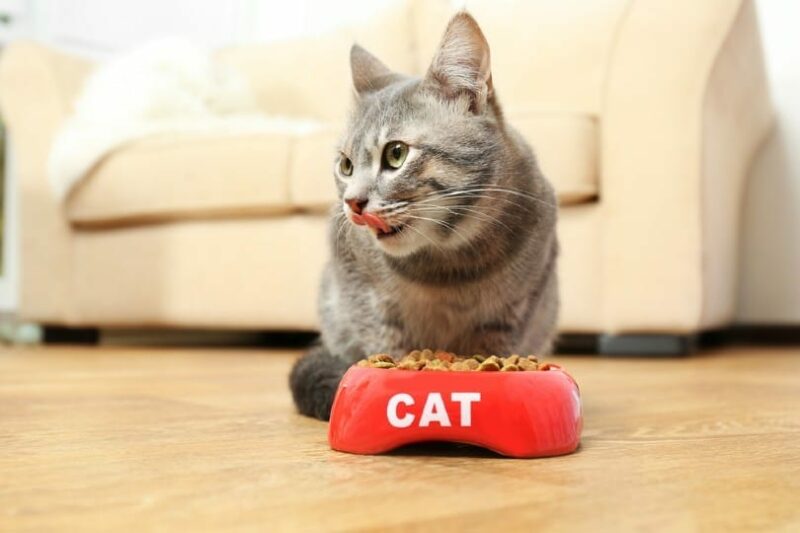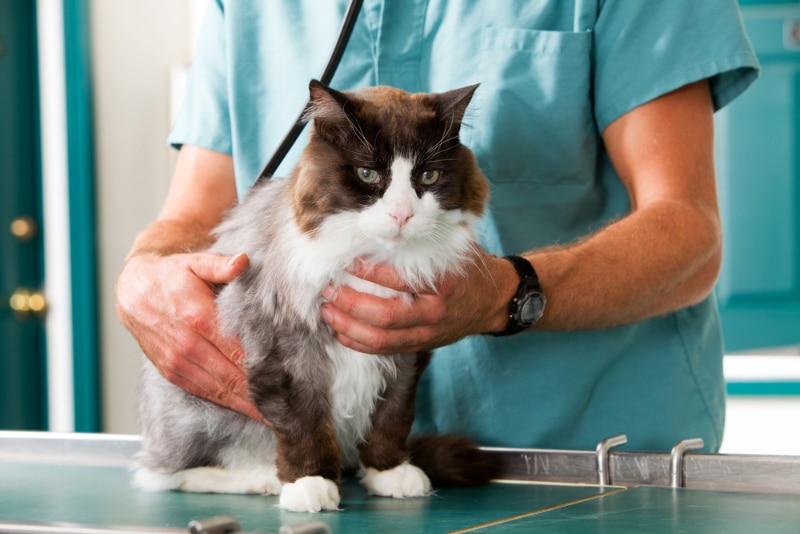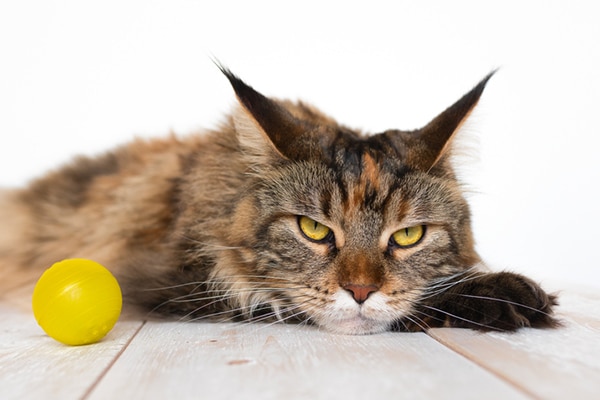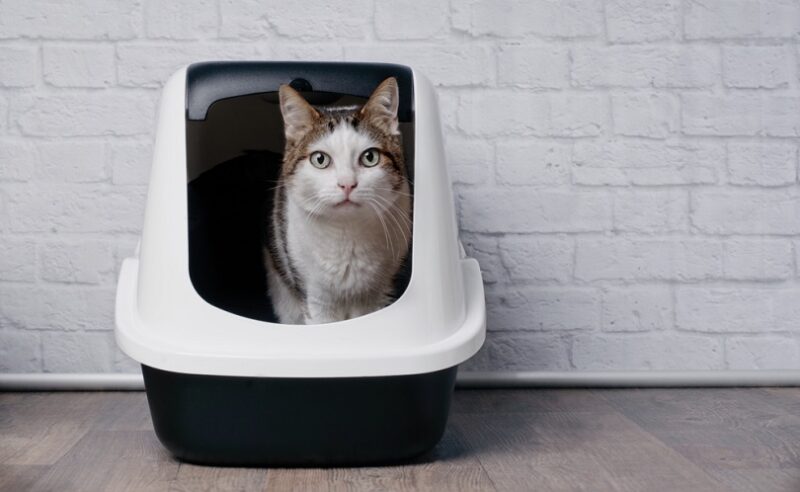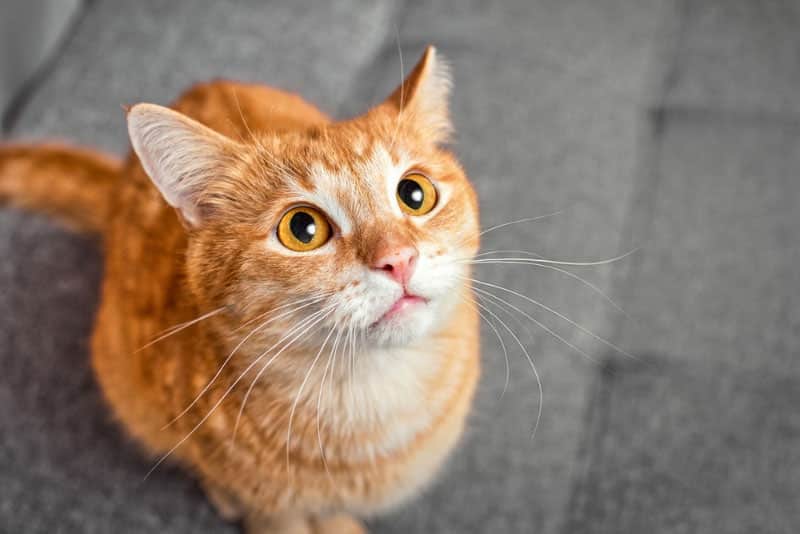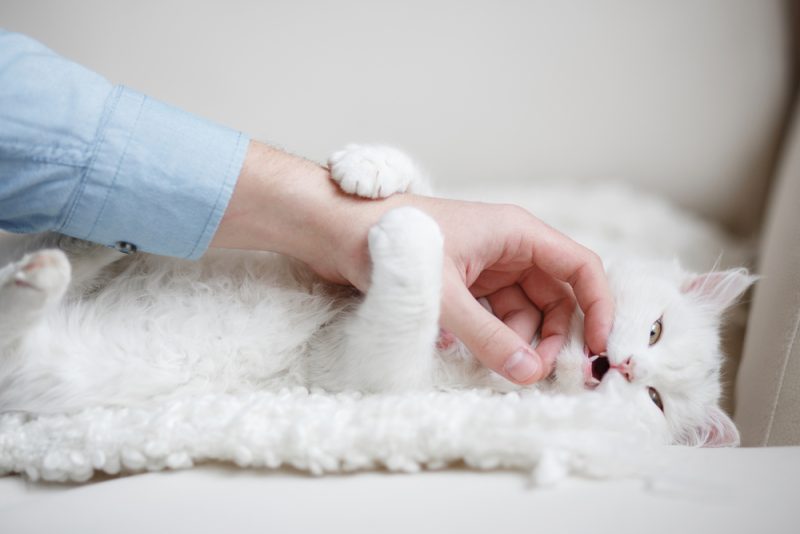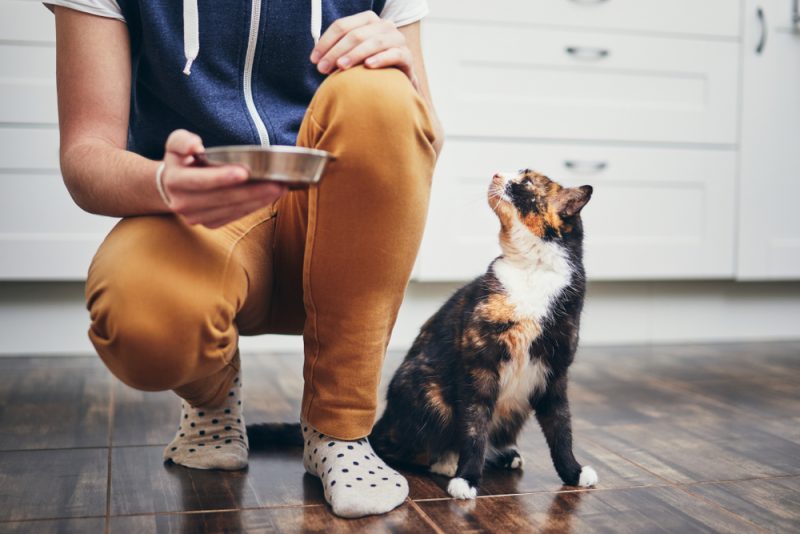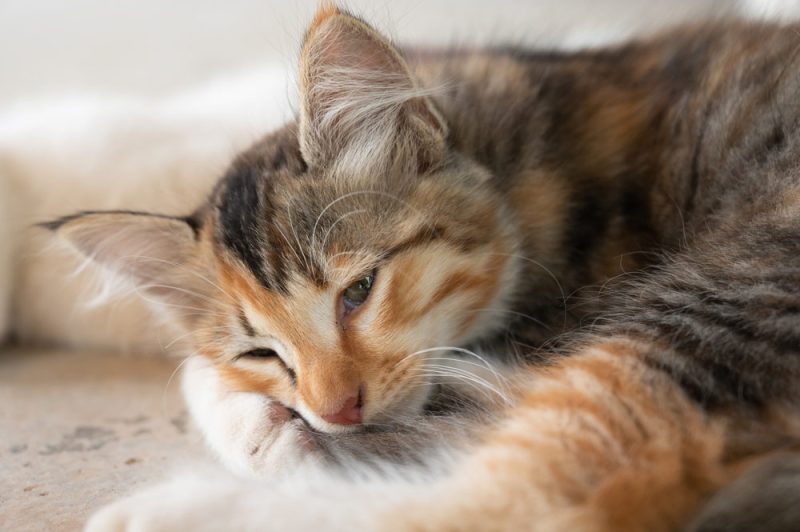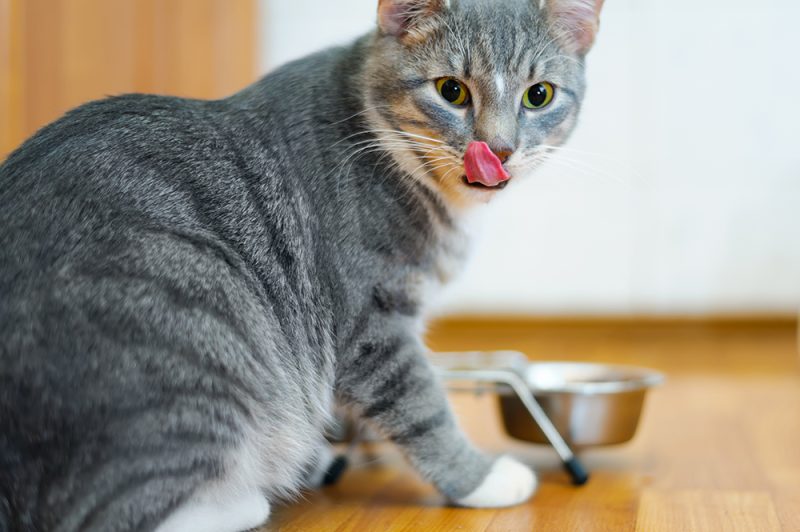Cats are fascinating creatures, often leaving us in awe with their peculiar habits and quirky behaviors. However, as a cat owner, you might be alarmed to see thick saliva dripping from your feline’s mouth, making you wonder if it’s a cause for concern or just another quirk to add to the list. In this article, we delve deep into the topic and provide you with 12 possible reasons behind your cat’s drooling, along with helpful tips on addressing the issue and ensuring your cat’s well-being.

The 12 Reasons Your Cat May Drool Thick Saliva
1. Dental Problems
Dental issues, such as gingivitis, periodontal disease, or tooth decay, can cause thick saliva and drooling in cats. These problems can result from a lack of proper oral hygiene, genetics, or other underlying health conditions.
To help prevent dental problems, ensure that your cat receives regular dental checkups and cleanings with a veterinarian. Additionally, practice good oral hygiene at home by brushing your cat’s teeth regularly using a cat-specific toothbrush and toothpaste.
However, if you notice any signs of discomfort, bleeding, foul breath, or difficulty eating, consult a vet immediately.
- Dental cleanings: Professional dental cleanings under anesthesia can help remove plaque and tartar buildup, addressing early-stage dental problems before they progress.
- Tooth extractions: In cases of severe tooth decay or advanced periodontal disease, a vet may recommend extracting the affected teeth to alleviate pain and prevent further complications.
- Prescription medication: a vet may prescribe antibiotics, anti-inflammatory drugs, or pain relief medications to treat infections, reduce inflammation, and manage pain associated with dental problems.
2. Foreign Objects
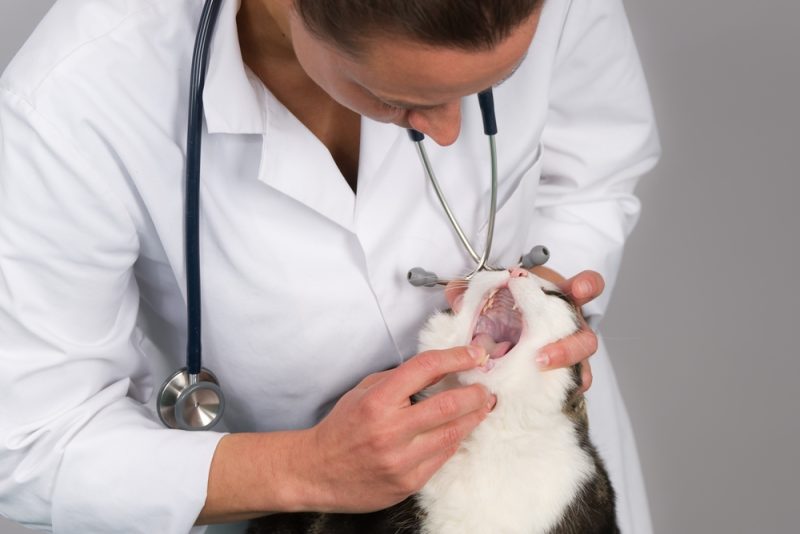
Cats are curious creatures, and sometimes they may accidentally ingest a foreign object, like a piece of string, a small toy, or even a bone fragment, which can become lodged in their mouth, throat, or stomach. This can cause excessive drooling, gagging, and discomfort.
If you suspect your cat has ingested a foreign object, seek veterinary assistance promptly. The vet may perform a physical examination, X-ray, or endoscopy to diagnose the problem and determine the location of the object.
- Manual removal of the object: If the object is visible and easily accessible, the vet may attempt to remove it using forceps or other specialized tools.
- Endoscopic removal: If the object is lodged farther down the throat or in the esophagus, the vet may use an endoscope to retrieve it without resorting to surgery.
- Surgical intervention: In severe cases where the object cannot be removed using less invasive methods, surgery may be necessary to remove the foreign body and repair any damage caused by the obstruction.
- Medication: The vet may prescribe medications to manage pain, reduce inflammation, or treat any secondary infections resulting from the foreign object.
Always monitor your cat’s behavior and environment closely to minimize the risk of foreign object ingestion, and take prompt action if you suspect a problem.
3. Oral Injuries
Injuries to the mouth, such as cuts, burns, or ulcers, can lead to your cat drooling thick saliva. These injuries can result from various causes, including chewing on sharp objects, exposure to hot surfaces, or even rough play with other pets. Keep an eye out for any signs of injury, such as reluctance to eat, pawing at the face, or visible wounds in the mouth.
If you suspect a problem, consult a vet promptly.
If you need to speak with a vet but can't get to one, head over to PangoVet. It's an online service where you can talk to a vet online and get the advice you need for your pet — all at an affordable price!

- Pain relief: Over-the-counter or prescription pain relievers may be recommended to help alleviate discomfort and reduce inflammation.
- Antibiotics: If there is a risk of infection or if the injury is already infected, a vet may prescribe antibiotics to treat the infection and prevent complications.
- Wound care: The vet may provide instructions on cleaning and caring for the wound to promote healing. This may include using antiseptic rinses or applying topical ointments.
- Soft diet: Temporarily feeding your cat a soft, easily chewable diet can help minimize irritation and discomfort while the injury heals.
4. Poisoning
Many substances toxic to cats can cause excessive drooling, such as certain houseplants (e.g., dieffenbachias or azaleas), insecticides, rodenticides, or cleaning products. Keep these items out of your cat’s reach and familiarize yourself with common hazards in your home.
If you suspect poisoning, contact a vet or an emergency animal poison control center immediately.
- Administering activated charcoal: This can help absorb the toxin and prevent further absorption into the bloodstream.
- Inducing vomiting: In some cases, inducing vomiting may be recommended to help expel the toxin from your cat’s system.
- Providing supportive care: Intravenous fluids, oxygen therapy, or medication to manage signs may be necessary to help your cat recover.
5. Nausea
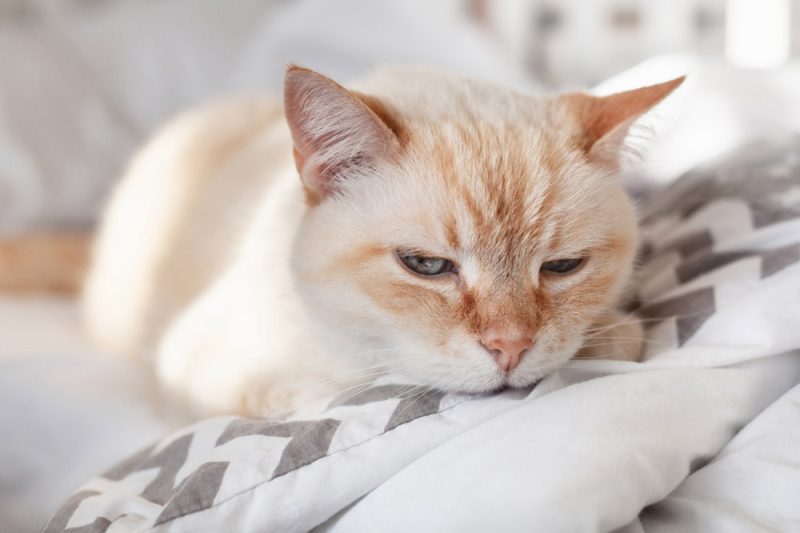
Just like humans, cats can experience nausea, which may result in your cat drooling thick saliva. This could be due to gastrointestinal issues (e.g., gastritis or inflammatory bowel disease), motion sickness, side effects from medications, or other underlying health conditions like kidney or liver disease.
Monitor your cat’s behavior, and consult a vet if the problem persists.
- Dietary changes: Switching to a bland, easily digestible diet or feeding smaller, more frequent meals may help reduce nausea.
- Anti-nausea medication: a vet may prescribe medications to help alleviate nausea and vomiting.
- Further diagnostic tests: If the cause of nausea is unclear, a vet may recommend additional tests, such as blood work, X-rays, or an ultrasound, to determine the underlying issue and develop an appropriate treatment plan.
6. Upper Respiratory Infections
Cats suffering from upper respiratory infections (URIs) may experience thick saliva and drooling due to congestion and irritation in their nasal passages. Common causes of URIs in cats include feline herpesvirus, feline calicivirus, and bacterial infections like Chlamydophila felis or Bordetella bronchiseptica. If you notice signs like sneezing, coughing, discharge from the eyes or nose, lethargy, or loss of appetite, seek veterinary care as soon as possible.
a vet may recommend treatment options based on the specific cause of the infection.
- Antibiotics: If a bacterial infection is suspected, the vet may prescribe antibiotics to help eliminate the bacteria and resolve the infection.
- Antiviral supplements: Supplements with antiviral properties may be recommended to help manage the signs and speed up the cat’s recovery.
- Supportive care: Ensuring that your cat stays well-hydrated, providing a comfortable and warm environment, and using a humidifier to help relieve congestion can all contribute to a more comfortable recovery process.
- Sign management: Over-the-counter saline drops or prescription medications may be recommended to help alleviate nasal congestion and discomfort.
7. Stress and Anxiety
Cats experiencing stress or anxiety may drool as a coping mechanism.
- Comfortable hiding spots: Provide cozy, quiet places for your cat to retreat when they feel stressed or overwhelmed.
- Regular playtime: Engaging your cat in interactive play sessions can help reduce stress and provide mental stimulation.
- Calming pheromone diffusers: Products like Feliway mimic natural feline facial pheromones, which can help create a calming environment and reduce stress.
- Consistent routine: Maintaining a consistent daily routine for feeding, playtime, and grooming can help your cat feel more secure and relaxed.
- Minimizing environmental stressors: Identify potential stressors in your cat’s environment, such as loud noises or other pets, and work on minimizing their impact.
8. Heatstroke
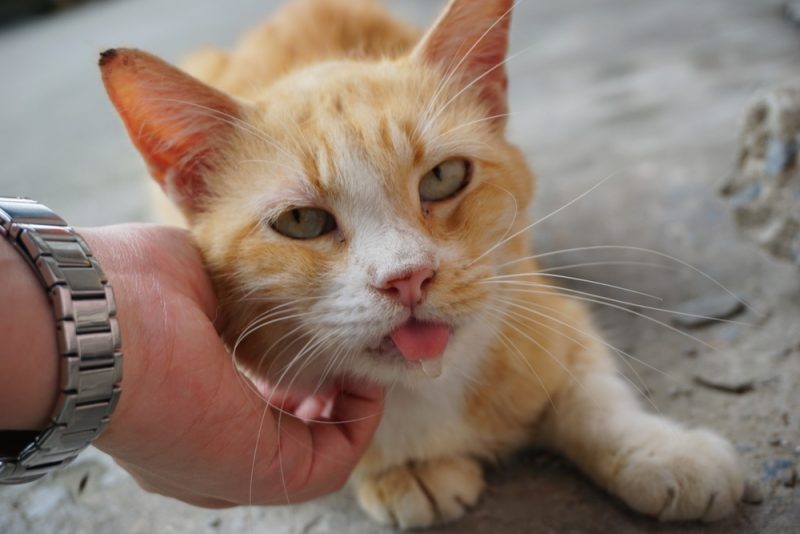
Heatstroke can cause excessive drooling and thick saliva in cats, as their bodies struggle to regulate temperature during hot weather.
- Access to cool, shaded areas: Ensure that your cat has plenty of places to escape the heat, both indoors and outdoors.
- Fresh water: Provide your cat with access to clean, fresh water at all times to help them stay hydrated.
- No direct sunlight: Keep your cat indoors during the hottest parts of the day, and close curtains or blinds to block out direct sunlight.
- Good ventilation: A fan or window that provides good ventilation can help lower their body temperature
- Cooling mats: Consider providing a cooling mat or damp towel for your cat to lie on if they seem to be struggling with the heat.
If you suspect your cat is experiencing heat stroke, move them to a cooler environment immediately and seek veterinary care. Signs of heat stroke may include panting, rapid heartbeat, vomiting, diarrhea, or lethargy. Prompt treatment is essential to prevent serious complications or even death.
9. Feline Stomatitis
Feline stomatitis, also known as lymphocytic plasmacytic stomatitis, is an inflammatory condition that affects a cat’s mouth and gums, causing pain, redness, and swelling. This discomfort often leads to your cat drooling thick saliva and not eating. It may also make it difficult for your cat to eat, groom themselves, or even close their mouth properly. If left untreated, feline stomatitis can lead to severe oral pain, weight loss, and a decreased quality of life.
If you suspect your cat is suffering from feline stomatitis, it’s crucial to consult a veterinarian for a proper diagnosis and treatment plan. a vet will likely perform a thorough oral examination, which may include dental X-rays, to assess the extent of the inflammation and rule out other potential causes of your cat’s signs.
Based on the diagnosis, the veterinarian may recommend a combination of treatments to manage feline stomatitis effectively.
- Dental cleanings: Regular professional dental cleanings under anesthesia can help remove plaque and tartar buildup, which may contribute to inflammation and discomfort.
- Medications: Anti-inflammatory drugs or immunosuppressive medications may be prescribed to help reduce inflammation and alleviate pain. Antibiotics may also be recommended if there is a secondary bacterial infection present.
- Pain management: The vet may prescribe pain-relief medications to keep your cat comfortable during the treatment process.
- Dietary changes: Switching to a soft, highly palatable, and hypoallergenic diet may help reduce irritation in your cat’s mouth and promote healing. The vet can recommend appropriate food options based on your cat’s specific needs.
- Oral hygiene: Maintaining good oral hygiene at home, such as regular tooth brushing or using dental chews and water additives, can help prevent further inflammation and promote overall oral health.
- Surgical intervention: In severe cases, the vet may recommend surgical intervention, such as tooth extractions, to alleviate pain and inflammation associated with feline stomatitis.
10. Medications
Certain medications can cause thick saliva and drooling in cats as a side effect. For example, drugs like certain antibiotics, pain relievers, or sedatives may lead to increased salivation. If you suspect your cat’s medication is causing excessive drooling, it’s important to discuss alternative options with a vet.
a veterinarian may recommend adjusting the dosage of the current medication, which could help reduce the side effects without compromising its effectiveness. In some cases, they might suggest switching to a different medication altogether, which may have fewer side effects or be better suited to your cat’s specific needs.
It’s important to remember that you should never adjust your cat’s medication dosage or switch medications without consulting a veterinarian first. They are best equipped to determine the most appropriate course of action based on your cat’s medical history, the specific medication being administered, and the severity of the side effects.
11. Neurological Disorders
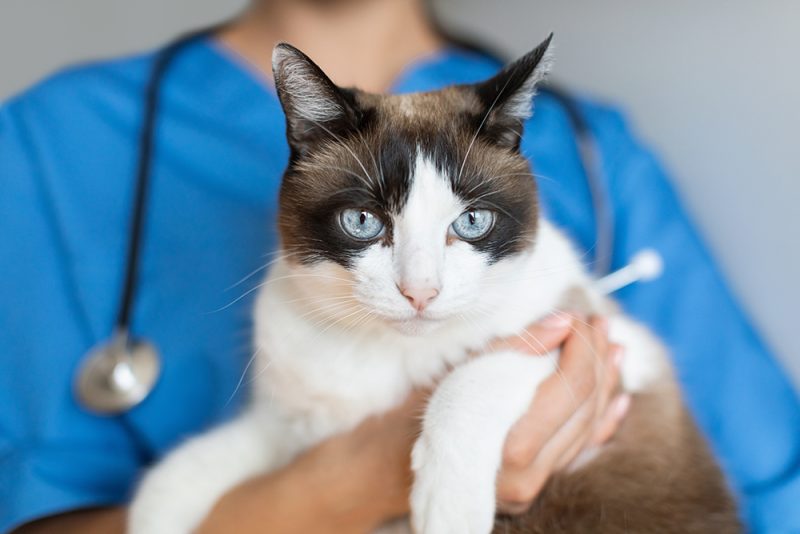
Neurological disorders, including seizures or nerve damage, can result in excessive drooling in cats. These disorders may affect your cat’s ability to control their salivation, swallow, or even close their mouth properly. If you notice any unusual behaviors or signs, such as sudden loss of balance, muscle tremors, difficulty walking, or uncontrolled eye movements, consult a vet for further evaluation.
The veterinarian may perform a series of diagnostic tests to determine the underlying cause of the neurological disorder. These tests could include blood work, X-rays, MRI or CT scans, or even a cerebrospinal fluid analysis, depending on the severity and nature of the signs. Once a diagnosis is made, the vet will recommend appropriate treatments based on the specific condition affecting your cat.
Treatment options for neurological disorders may vary widely, depending on the cause and severity of the condition. In some cases, medication may be prescribed to help manage the condition, such as anti-seizure drugs for cats with epilepsy or medications to reduce pain and improve nerve function in cats with nerve damage. In other cases, supportive care, physical therapy, or lifestyle modifications may be necessary to help your cat maintain a good quality of life.
12. Neoplasia or Tumor
Just like humans, cats are also prone to cancer. Squamous Cell Carcinoma is the most common type of oral tumor in cats. Drooling may be observed when a cancerous mass develops involving the tongue or the back of the throat. Other signs include bleeding, pawing at the mouth, and pain when eating. It usually has a poor prognosis especially if the tumor has spread. Treatment would usually be invasive, including full surgical excision which is difficult due to the location.

Conclusion
Understanding the potential reasons behind why your cat’s drooling thick saliva all of a sudden can help you take appropriate action to address the issue. Whether it’s making environmental adjustments, seeking veterinary care, or exploring home remedies, acting promptly and responsibly is essential for your feline’s well-being. Keep in mind that excessive drooling is a sign that something is going on with your pet. By staying vigilant and working closely with a veterinarian, you can ensure that your cat receives the best possible treatment, even when faced with unexpected challenges.
Related Reads:
Featured Image Credit: Ling_Chen, Shutterstock


